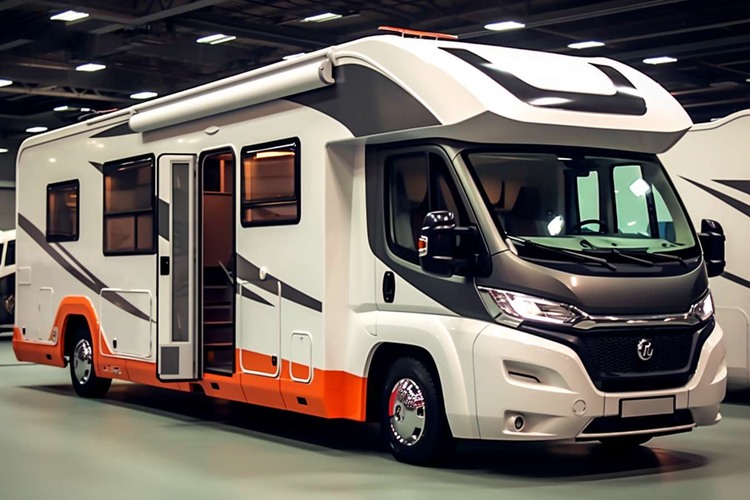RV, Camper & Motorhomes Loans: Complete Financing Guide
Getting behind the wheel of your dream RV, camper, or motorhome doesn't have to remain just a fantasy. With various financing options available today, you can turn your mobile adventure dreams into reality through structured loan programs designed specifically for recreational vehicles. Understanding the different financing paths, payment structures, and benefits available will help you make an informed decision that fits your budget and lifestyle goals.

What Are the Main Types of Campervan Financing Options?
Several financing routes exist for prospective RV owners, each with distinct characteristics and requirements. Traditional RV loans through banks and credit unions typically offer competitive interest rates for borrowers with good credit scores. These secured loans use the vehicle as collateral, often providing terms ranging from 10 to 20 years depending on the RV’s value and age.
Dealer financing represents another popular option, where RV dealerships partner with financial institutions to offer on-site loan processing. This convenience often comes with promotional rates or special manufacturer incentives, particularly during peak selling seasons.
Personal loans provide an alternative for those seeking unsecured financing, though they typically feature higher interest rates and shorter repayment terms. Online lenders have also emerged as viable alternatives, offering streamlined application processes and quick approval decisions for qualified borrowers.
How to Choose the Right Flexible Payment Option for Your Dream Campervan?
Selecting the appropriate payment structure requires careful consideration of your financial situation and long-term goals. Fixed-rate loans provide predictable monthly payments throughout the loan term, making budgeting straightforward and protecting against interest rate fluctuations.
Variable-rate options may start with lower initial rates but can adjust over time based on market conditions. These loans work best for borrowers who expect their income to increase or plan to pay off the loan quickly.
Seasonal payment plans cater specifically to RV owners who use their vehicles primarily during certain months. These arrangements allow for higher payments during peak usage periods and reduced payments during off-seasons, aligning with many RVers’ travel patterns.
What Are the Benefits of Flexible Payment Campervan Options?
Flexible financing arrangements offer numerous advantages for RV buyers seeking customized solutions. Lower monthly payments through extended loan terms can make higher-end RVs accessible to more buyers, though this approach increases total interest costs over the loan’s lifetime.
Payment flexibility also accommodates irregular income patterns common among retirees, seasonal workers, or self-employed individuals. Many lenders now offer payment deferral options during financial hardships, providing additional security for borrowers.
Some flexible programs include the option to make extra principal payments without penalties, allowing borrowers to pay off loans faster when their financial situation improves. This feature can save thousands of dollars in interest charges over the loan’s duration.
| Lender Type | Typical APR Range | Loan Terms | Key Features |
|---|---|---|---|
| Banks/Credit Unions | 4.5% - 7.5% | 10-20 years | Competitive rates, relationship benefits |
| RV Dealers | 3.9% - 9.5% | 12-20 years | Promotional offers, convenient processing |
| Online Lenders | 5.5% - 12% | 7-15 years | Fast approval, flexible requirements |
| Personal Loans | 8% - 20% | 3-7 years | No collateral required, quick funding |
Prices, rates, or cost estimates mentioned in this article are based on the latest available information but may change over time. Independent research is advised before making financial decisions.
Interest rates and loan terms vary significantly based on factors including credit score, down payment amount, RV age and type, and overall loan amount. New RVs typically qualify for better rates than used units, while Class A motorhomes often receive more favorable terms than smaller travel trailers due to their higher values and longer lifespans.
Down payment requirements generally range from 10% to 20% of the RV’s purchase price, though some programs allow lower down payments for qualified buyers. A larger down payment reduces monthly obligations and may secure better interest rates from lenders.
Credit score requirements vary among lenders, with traditional banks typically requiring scores above 650 for optimal rates. Alternative lenders may work with borrowers having lower credit scores, though this usually results in higher interest rates or additional fees.
The application process has become increasingly streamlined, with many lenders offering online pre-approval within minutes. Required documentation typically includes proof of income, employment verification, bank statements, and information about the RV being purchased.
Understanding these financing fundamentals empowers you to negotiate effectively with lenders and dealers while ensuring you secure terms that support your long-term financial health. The recreational vehicle financing market continues evolving, with new products and competitive rates regularly emerging to serve the growing community of RV enthusiasts seeking their perfect mobile lifestyle solution.




